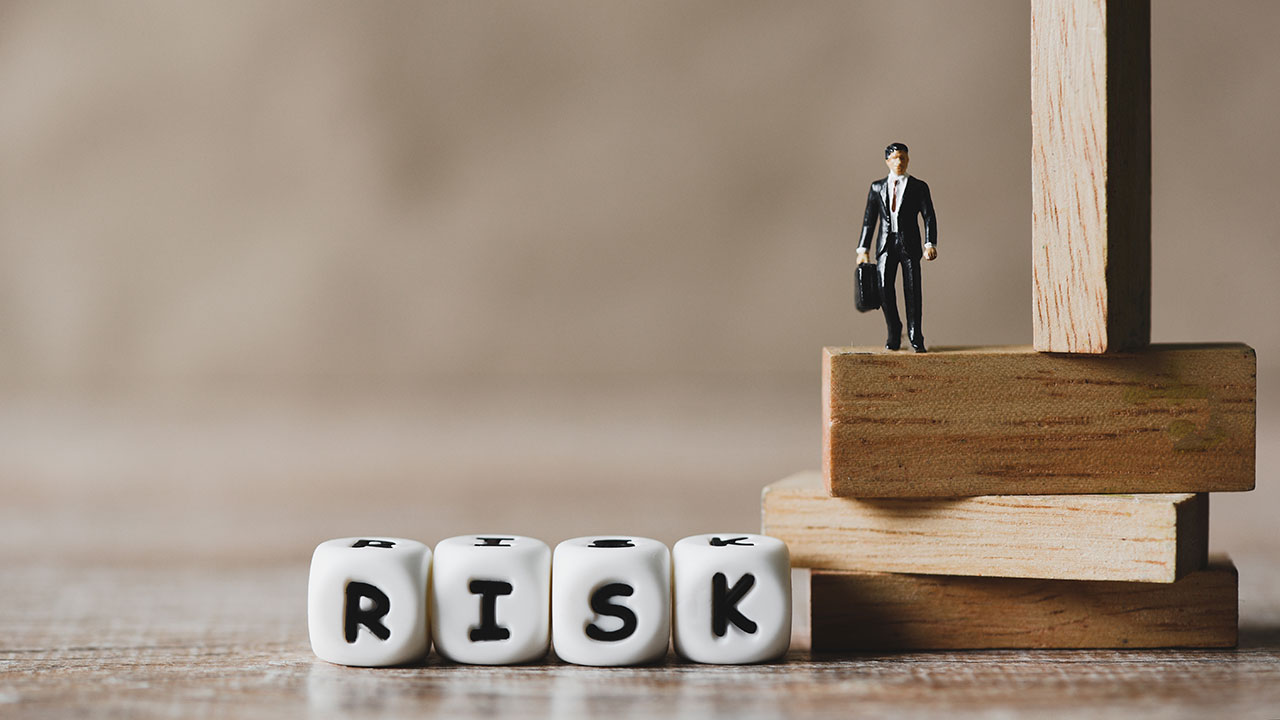Investors are thinking more than ever about risk these days, but their concerns have yet to translate into widespread action.
Risk mitigation has been jobbed out to money managers. Most investors still dump money into financial accounts and hope for the best.
There has been a mass migration into index funds and ETFs as investors have been taught to buy “diversified” baskets of stocks and forget about picking individual shares or actively managing their investments.
This approach makes implicit assumptions which are dangerous and wrong.
Relatively few question whether a portfolio 100% invested in index funds and ETFs is truly diversified. The assumption that stocks and bonds offer the best returns over the long haul hasn’t been right in more than 20 years.
You won’t hear about it from money managersBar or the commentators on CNBC, but the times, they are a changin’.
Gold has outperformed the equity and debt markets for the last two decades plus.
The most recent wave of precious metals investors started in 2020. Prior to that was a wave following the 2008 financial crisis. These folks began thinking about counterparty risk at the macro level -- and which assets can mitigate it.
Coins, rounds, or bars held directly by investors cannot have their value destroyed when some third party makes a mistake, or worse. These days there are lots of mistakes being made and a fair bit of what appears to be corruption and intentional sabotage at the institutional level.
While buying demand in the physical bullion market has been red hot in recent years, the real awakening and stampede away from conventional assets laden with counterparty risk may still lie ahead.
Most investors remain on auto-pilot. This is reflected in the U.S. equity markets which have been largely oblivious to mounting signs of trouble -- falling Leading Economic Indicators and earnings, growing geopolitical uncertainty, inverted yield curves, and more.
People plowing money into stocks and bonds may not be aware of exactly who their counterparties are and just how risky it is to be betting on them.
Some have forgotten the lessons of 2008.
Black swan events, such as a collapse in derivatives, can disrupt the global, highly interconnected financial system everywhere and all at once.
The truth is none of the crooked bankers responsible for the mortgage fraud were held accountable. It is therefore safer to assume they are on to their next swindle.
The final reckoning for corruption and short-term thinking which dominates Wall Street is still to come. Assuming the real players in our financial system have wised up and straightened out is both dangerous and naïve.
It also seems unwise to be betting on corporate leaders when so many have become openly hostile toward customers, employees, and investors.
For example, investors who own an index fund which holds a stake in Disney probably don’t understand what they are getting, i.e. a woke executive staff seemingly hell-bent on killing the brand in the name of Diversity, Equity, and Inclusion policies by attacking American values and marginalizing certain groups.
Share prices in Disney are down 50% from the 2021 highs and all gains since 2014 have been erased.
Investments in stocks and bonds also mistakenly assume the government is working to preserve free and fair markets and an environment where business can flourish.
Confidence in politicians and the bureaucrats running our public institutions is in freefall. Despite that, so many investors are all-in on conventional assets.
They have their wagons 100% hitched to Joe Biden, Chuck Schumer, SEC regulators, FDA bureaucrats, etc. -- a long and growing list of people whose track records are pock marked with failure and corruption.
The decline in confidence in leadership is accelerating because there has been zero accountability for corrupt, or just plain terrible, decision making on Wall Street, in fortune 500 companies, or in Washington DC.
Investors can avoid risks associated with all of these counterparties with an investment in physical gold and silver. The years ahead could yield a large outperformance of hard assets over paper assets.

About the Author:
Stefan Gleason is CEO of Money Metals Exchange, the company recently named "Best Overall Online Precious Metals Dealer" by Investopedia. A graduate of the University of Florida, Gleason is a seasoned business leader, investor, political strategist, and grassroots activist. Gleason has frequently appeared on national television networks such as CNN, FoxNews, and CNBC and in hundreds of publications such as the Wall Street Journal, TheStreet, and Seeking Alpha.





